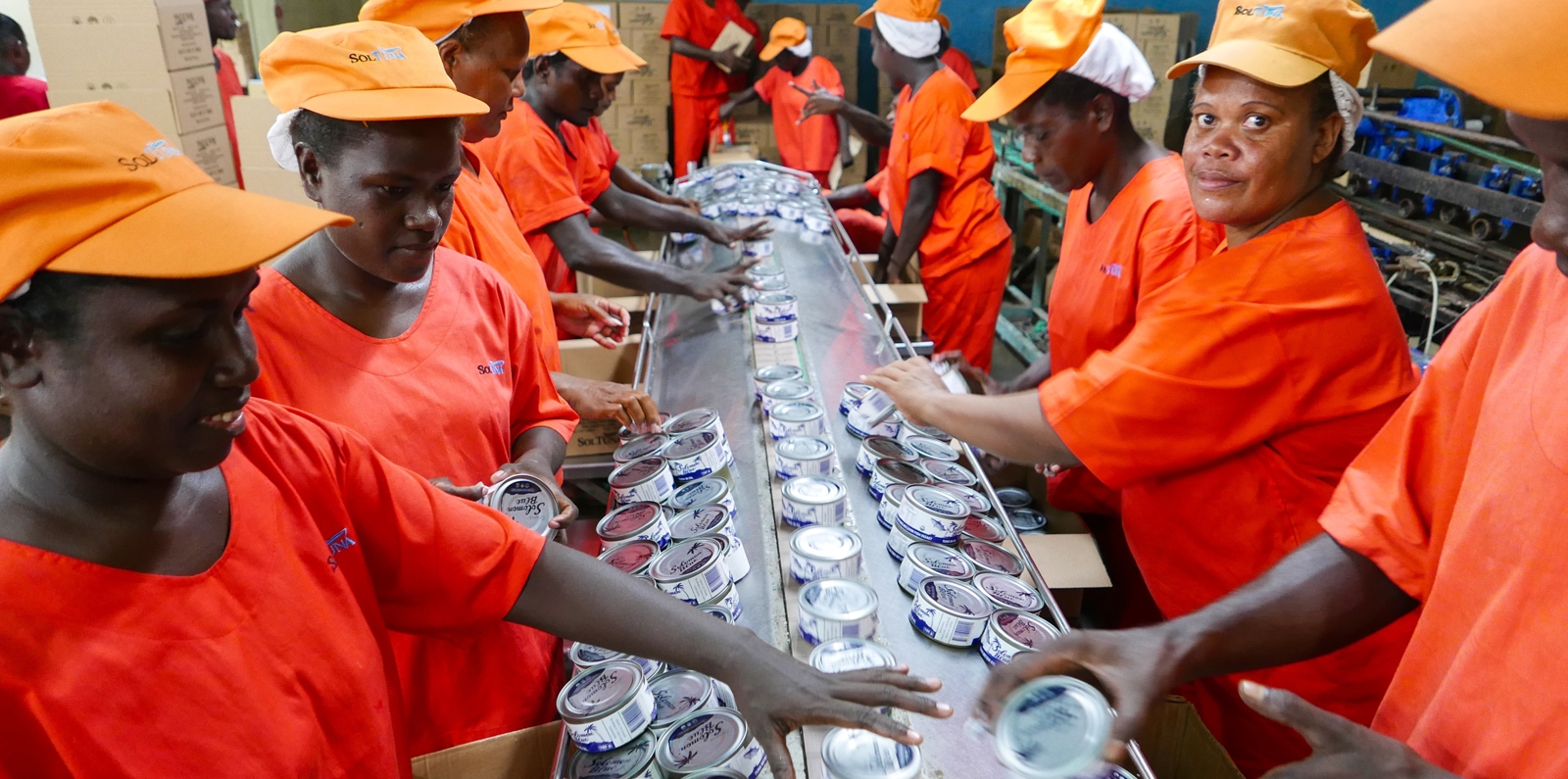About the Project
Located in the South Pacific region, the Solomon Islands’—a fragile situation country made more vulnerable through the effects of climate change—ranks among the poorest of the world. With 30 percent unemployment, and only a small role for large-scale agriculture given the scarcity of large areas of flat land, the nation depends heavily on its vibrant fisheries sector as a sustainable source of economic growth. The tuna industry accounts for 18% of the country’s GDP.
Supporting a more productive and resilient fisheries sector in the Solomon Islands has the potential to sustain livelihoods, improve nutrition, and increase government tax revenues. In the long term, investment in the fisheries sector is expected to contribute to the security and equity of the country. In 2017, IFC and GAFSP made an investment of US$10 million to National Fisheries Developments Ltd (NFD) to support sustainable tuna production and employment in the Solomon Islands. The new financing helps fund the purchase of new fishing vessels and ensures maintenance of the existing fishing fleet. IFC will provides advisory services to promote best practices in environmental and social risk management. The investment consists of a blended finance package of up to US$30 million for NFD, consisting of support from IFC and GAFSP of US$15 million each. The funding was made across three separate US$10 million commitments and disbursements, the first of which was made in 2017. The funding allows the purchase of up to three new fishing vessels and will expand NFD’s capacity by nearly 70 percent.
Country
- Solomon Islands
Project Status
ActiveFunding
Private Sector-led projectSupervising entity
- IFC
GAFSP Funding Amount
10.00Results
This project creates new jobs, especially for women, in the Solomon Islands. The addition of a new fishing vessel, which has already been purchased, will increase NFD’s catch volume by some 8,000 MT per year and will require 30 fishermen to operate the vessel. The increased processing at SolTuna, a tuna processor and NFD sister company, will require about 200 new staff, mostly women.
Considering the lack of private sector employment opportunities in the Solomon Islands, job creation at both companies is an important factor that will impact the local community. An additional two fishing vessels are expected to have a similar impact on catch volume, processing throughput, and job creation at NFD and SolTuna.
In addition, local farmers and their families will be included in NFD and SolTuna’s internal supply chains, as both companies will source agricultural produce and food products locally for their employees.
Contact
Mr. Niraj Shah
Head, GAFSP Private Sector Window
nshah1@ifc.org Washington, DC
Tel: 202 473 3743
